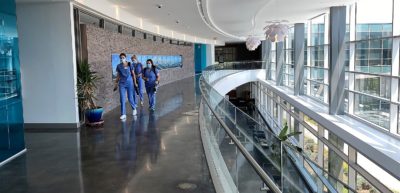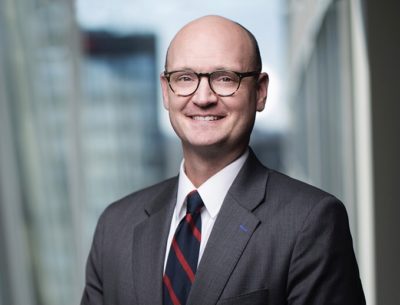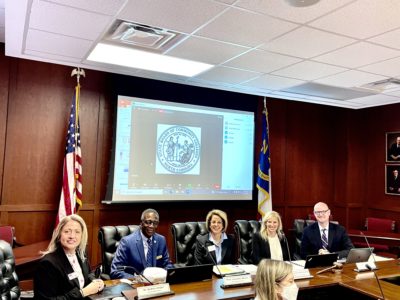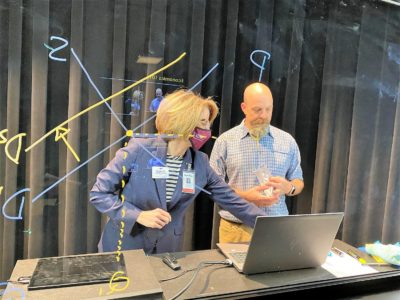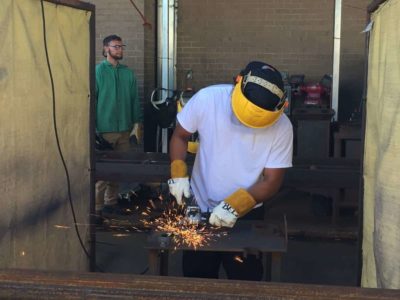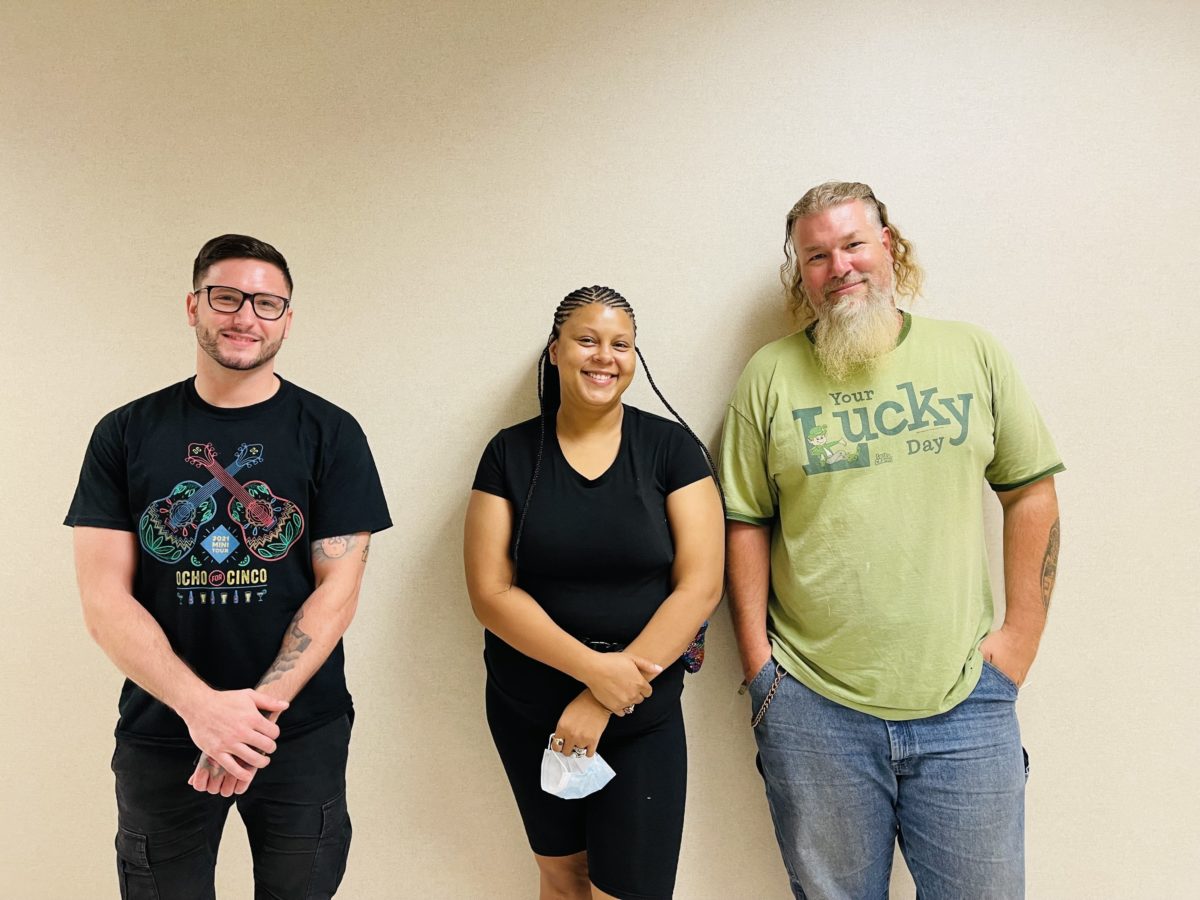

|
|
It’s been seven months since the launch of N.C. Reconnect, an initiative aimed at reconnecting adult learners (students over the age of 25) to community colleges in North Carolina, and initial data is showing positive results.
Early fall 2021 data showed 753 students were enrolled across the five pilot schools as a result of the initiative’s efforts. Of these, 97% persisted through the fall census date. North Carolina community colleges define census date as the 10% point in a course when a student’s enrollment is finalized for financial aid purposes.
The pilot project started with five community colleges of varying sizes across the state: Blue Ridge, Durham Technical, Fayetteville Technical, Pitt, and Vance-Granville. From the time it was announced to the project launch, presidents had roughly 35 days to make decisions about how they would lead the N.C. Reconnect initiative on their campuses.
“We launched something that was going to go live about 35 days later…and yet every president was like, ‘Let’s do that,'” said Mike Krause, outside senior advisor to the John M Belk Endowment in a November meeting with the State Board of Community Colleges.
Saying yes also meant embarking on a journey of introspection that would require asking the tough questions about how their college was meeting the diverse needs of adult learners.
“Serving our adult learners helps us become more equitable. Each of these colleges had a population of students that we knew if we served the adult learner well, we would also help that community close some of their most pressing equity gaps.”
Mike Krause, former executive director of the Tennessee Higher Education Commission and outside senior advisor to the John M. Belk Endowment
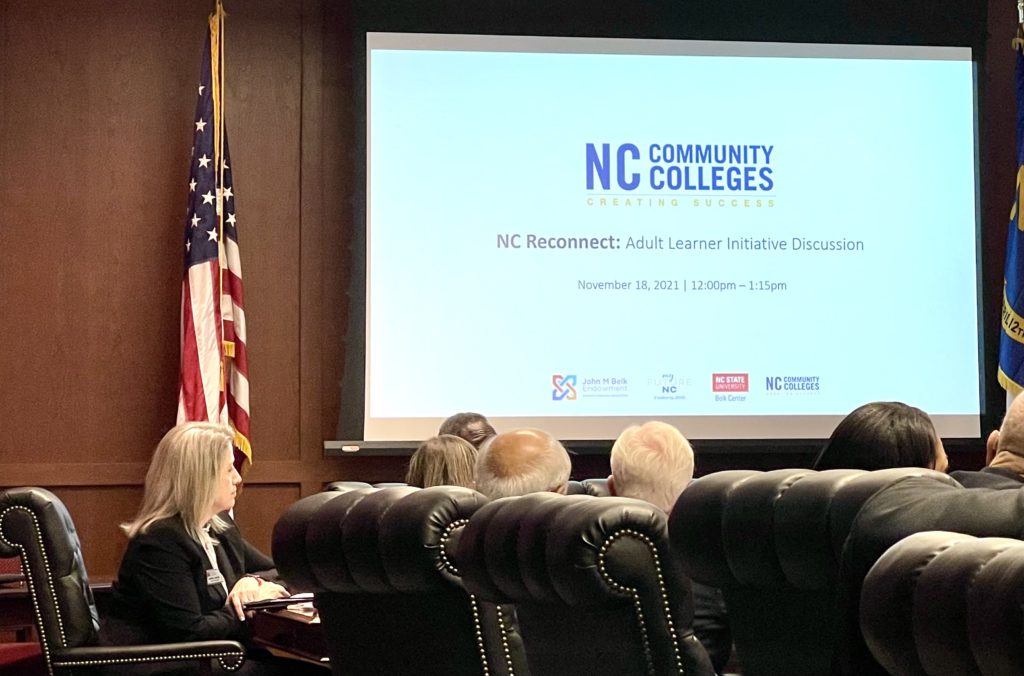

In collaboration with the John M Belk Endowment, myFutureNC, and the Belk Center for Community College Leadership and Research, the colleges began a re-enrollment campaign that aimed to reach individuals who had previously attended their institutions. N.C. Reconnect targeted students, including a pool of adult learners, who had completed at least 50% of a degree or credential and had been enrolled within the last five years. The initiative also included outreach to a broader audience of adult learners in the institutions’ service areas.
By November 2021, the pilot had been extended to include five more community colleges: Caldwell, Central Carolina, Forsyth Technical, Lenoir, and Wilkes. The second cohort of colleges launched their efforts in February.
Early results
According to Krause, the first five pilot colleges identified approximately 12,000 students who had previously attended, completed at least 50% of a degree or credential, and had been enrolled within the last five years. Working with InsideTrack, the colleges reached out with calls, texts, and emails. While 12,000 students were identified, not all students had current or updated contact information.
InsideTrack is a member of the nonprofit Strada Education Network and partners with colleges and universities to improve enrollment, persistence, and career readiness.
Krause said the message that resonated with students is that you can get a better skill and a better job – and the road to that runs through college.
Data analyzed in January 2022 showed out of 12,000, 753 students re-enrolled at one of the five colleges in fall 2021. That is almost a 6.3% yield. In the November meeting for the State Board of Community Colleges, Krause said a typical re-enrollment campaign at most colleges would have yielded between 1%-2%.
“If you would have asked us last spring when we jumped off this cliff, ‘What do you wish to accomplish?’ I would have said 500 unique enrollees is a good day’s work.”
Mike Krause, former executive director of the Tennessee Higher Education Commission and outside senior advisor to the John M. Belk Endowment
By the end of the fall semester, 87% of those students received grades in their courses and 68% either completed a credential or enrolled in spring 2022 classes.
Looking at the 753 students, the Belk Center analyzed data across the five colleges to determine whether persistence rates among adult learners were significantly different than 18-to-24 year-old students. Adult learners who were enrolled on day one were 43% less likely to still be enrolled after four weeks of class than students under 25 years old.
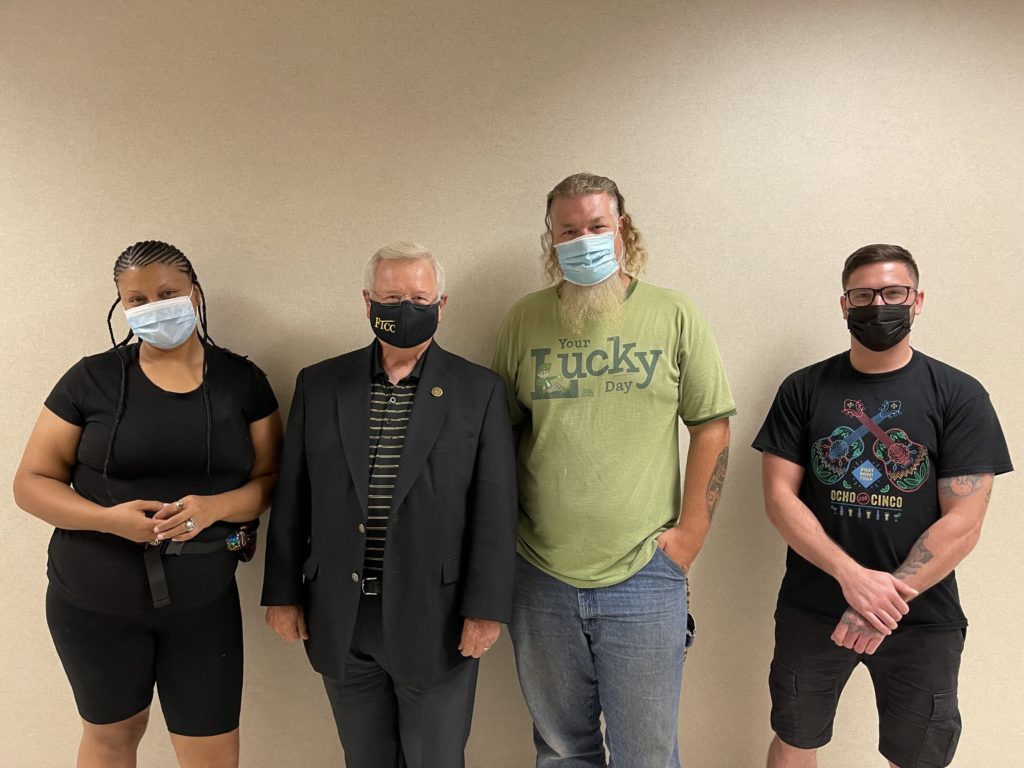

In addition to comparing the two age groups, the Belk Center looked at persistence rates across racial demographics and between full-time and part-time students.
Students identified through this initiative who were enrolled full-time on day one were 44% more likely to still be enrolled four weeks later compared to those who were enrolled part-time. The adult learners from this initiative who were enrolled full-time on day one were 21% more likely to be enrolled four weeks later compared to adult learners who were enrolled part-time.
Of the 753 students who were enrolled on day one, those who were Black, Hispanic, or American Indian were 46% less likely to still be enrolled four weeks later than students of other racial/ethnic groups.
While they were more likely to disengage before the four-week mark, those who identified as Black, Hispanic, and American Indian had higher rates of persistence to spring 2022 than white students if they made it past the four-week threshold.
This data is one snapshot of the work happening across the first five pilot colleges.
Changing the college model to better serve adult learners
When EdNC reported on the adult learner initiative in September, administrators said it was becoming increasingly clear that their college’s operating models did not account for the unique needs of adult learners.
Those needs include everything from help with transportation, child care, food, and clothing. It’s not to say that students younger than 25 don’t have non-instructional needs, but often adult learners require more wraparound services because of their stage in life.
Connecting students to support services
Early in the pilot project, leaders at Pitt Community College discussed creating a space dedicated solely to adult learners. The Adult Learning Center opened in November and provides support to students during the admissions process and beyond. Fayetteville Technical plans to open an adult learning center soon.
For Pitt to better understand each adult learner, the college developed an intake form to assess students and connect them to support services. The form is a series of questions that asks everything from a student’s knowledge of college terminology to academic goals to course delivery preference to employment status. It also asks students to identify areas in which they may need assistance or additional support, including academics, finances, career planning, food assistance, child care, technology access, transportation, and more.
But providing essential supports to students can be challenging when most college services stop after 5 p.m.
Modifying operating hours
“Gone are the days of 9 to 5,”said Dr. Antonio Jordan, director of admissions and enrollment services at Vance-Granville.
Abraham Dones, assistant dean at Durham Tech, agrees. Dones said they realized early on in the initiative they needed to amend their schedules to meet the needs of adult learners. So they did.
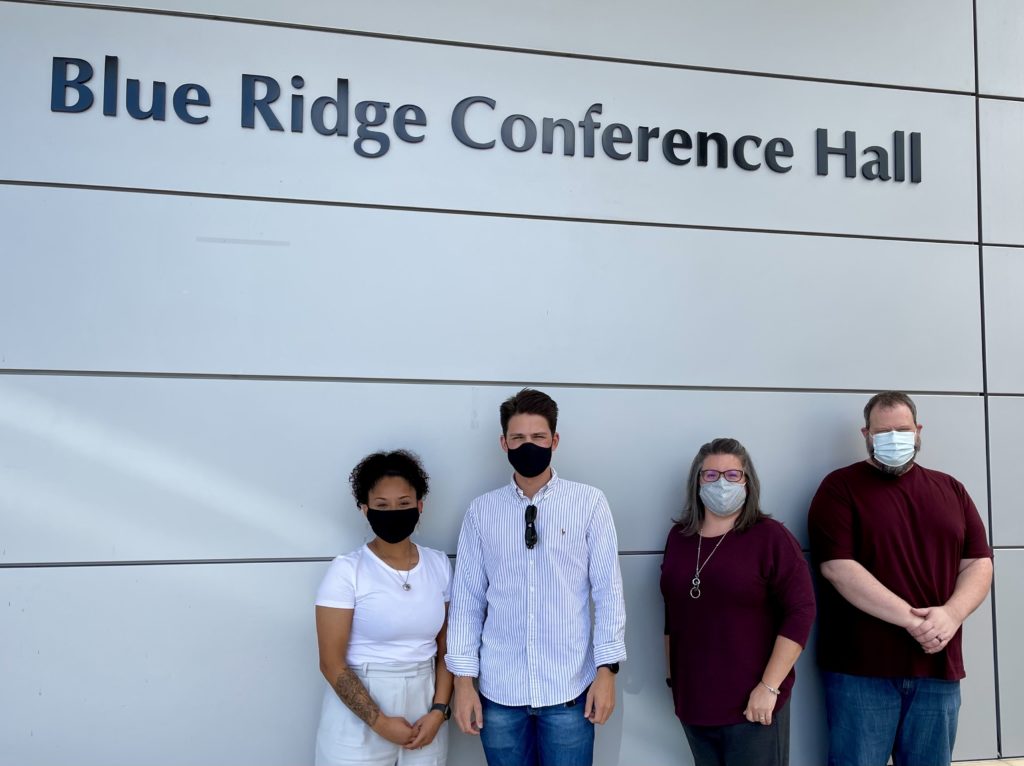

Using three enrollment specialists, Durham Tech created a robust schedule to help fill evening and weekend hours.
“What we realized is there’s no defined pattern of the best time to reach an adult learner,” Dones said. “We are realizing the needs are very individualistic.”
Pitt also extended their hours. The Adult Learning Center is open Monday to Saturday starting at 8 a.m. The center closes at 7 p.m. Monday through Thursday, 5 p.m. on Fridays, and noon on Saturdays.
Revamping course schedules and delivery
But it’s not just operating hours that are changing. Several pilot colleges are offering flexible course models. Known as HyFlex, the model combines face-to-face instruction with online learning. HyFlex courses are offered in person and both synchronously and asynchronously online. Students can choose how to participate and when.
Dr. Mark Sorrells, senior vice president of academic and student services at Fayetteville Technical, said if a student can’t make a 12 o’clock class because of their work schedule that day, it’s not a problem.
“You can plug into the instructional component of it and the workplace component of it anytime you want,” Sorrells said.
The college is opening 16 labs across campus for HyFlex learning. The labs are equipped with high fidelity video and audio. These courses are currently part of the medical lab technician program, but Fayetteville Tech hopes to extend the model to other programs in the future.
Some colleges are also offering eight-week semesters to provide flexibility for students.
A student who may have initially been overwhelmed with taking four or five classes in one 16-week semester can now take two or three classes in each eight-week semester. The result is a more manageable course load while still retaining full-time status. And according to the Belk Center’s data, full-time student status is linked to higher persistence rates.
Knowing why students aren’t enrolling
Dr. Rachel Desmarais, president of Vance-Granville, said one thing that has been important during this initiative is understanding why people are not attending.
“Every college needs to do some really hard work into finding out why their population isn’t attending. And we cannot assume that it is the same for everybody,” Desmarais said.
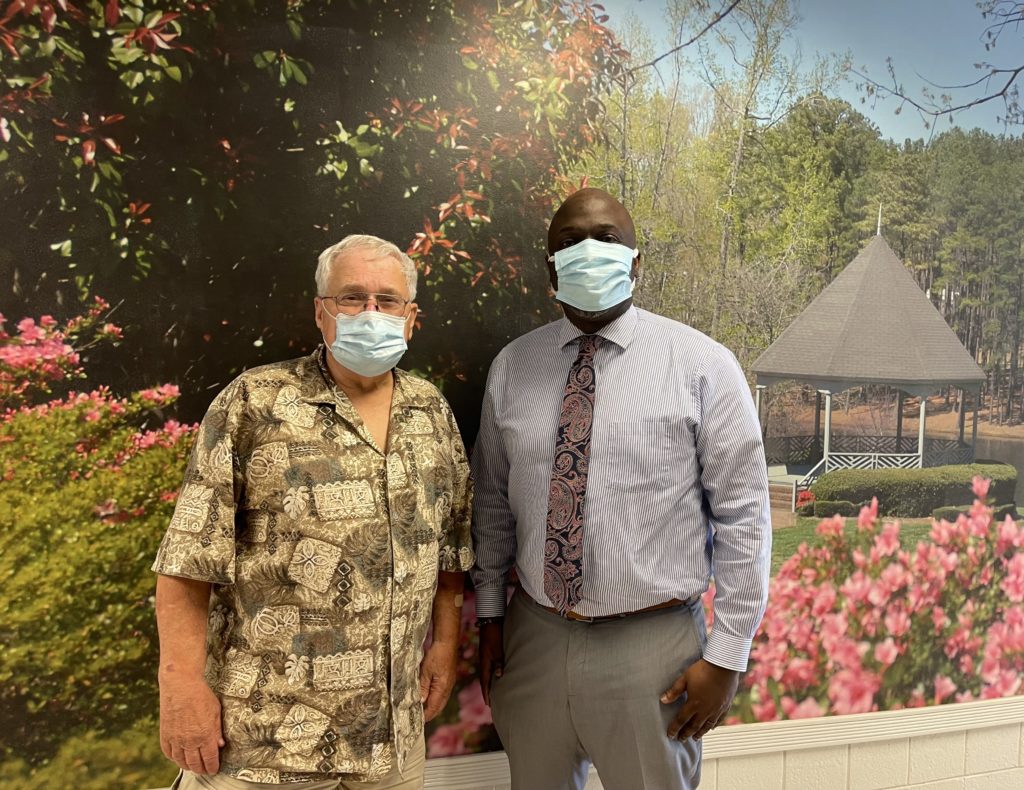

For Fayetteville Tech, who serves a large military population, a drop in college attendance can sometimes be attributed to military tours. That isn’t the case at Vance-Granville.
Desmarais said their students often drop out because of debt or financial aid restrictions.
When Vance-Granville reviewed the list of students who had previously been enrolled but stopped attending, they found that many of these students had small debts preventing them from re-enrolling.
So the college responded by clearing the debts of 214 students totaling over $116,000.
“But it’s not just a matter of solving the immediate pain point. It’s also looking at our systems and our college and the way we do things to help…remove barriers to attend our school. And we have to challenge the way things work, and it’s not comfortable.”
Dr. Rachel Desmarais, president of Vance-Granville Community College
Those barriers are often the very policies colleges put in place.
Amending policies
For years, Blue Ridge had a policy that would only allow students who requested an incomplete in a course one semester of extension.
“If the student was in the midst of a semester and something goes sideways for them and they’re not able to finish that course, then we could issue them an incomplete,” Kirsten Bunch, vice president for student services at Blue Ridge, said. “But that would only carry for one semester. And if they didn’t finish, they would end up either with a withdrawal grade or fail grade.”
Bunch said that it didn’t seem very forgiving to let the calendar dictate whether or not a student would receive credit for a course, so the college changed the policy.
In addition to modifying operating hours, offering more support services, and amending policies, community college leaders involved in the pilot said one of the biggest changes they are making is how they communicate internally and externally about the priority they place on adult learners.
Reflecting on the recent Dallas Herring Lecture, Desmarais said colleges need to think about who is not being heard and ask who is missing from their student population.
This type of intentionality extends beyond making adjustments on college campuses. Shifting a college model that has not always met the needs of its most vulnerable population takes an all-hands-on-deck approach.
And for that, administrators say the community is key.
In the community and making connections
When the North Carolina Community College System (NCCCS) was established in 1963, it was done so under the guiding principle that education should be available to all. Educator Dallas W. Herring, often dubbed the father of the NCCCS, said that community colleges should “take people from where they are and carry them as far as they can go.”
But carrying students as far as they can go is a difficult task when students are choosing to not enroll. That’s why leaders from each of the five pilot schools said that being in the community and building community partnerships is critical to engage and reconnect with the adult population.
“We spend way too much time in our hallowed halls thinking people are going to come to us. We’ve got to go out, we’ve got to meet them where they are. You know – have tablet, will travel.”
Dr. Rachel Desmarais, president of Vance-Granville Community College
Vance-Granville is sending their success coaches out into the community. One success coach will spend a portion of their time each week at the Economic Development Center, which happens to be located next to a skate park, a playground, and a basketball court.
“Go to where the people are,” Desmarais said.
And Pitt Community College is taking classes on the road, offering courses in a variety of locations throughout their service areas.
Dr. Johnny Smith, vice president of student development services at Pitt Community College said, “One thing that President Rouse really reiterates to a lot of us is we don’t want to leave anybody behind.”
Leaders from Blue Ridge and Fayetteville Tech said connecting with nonprofits and government agencies is an opportunity to engage with the community in a different way.
“We went to the ministerial council, we went to churches, we went to nonprofits…and neighborhoods that we normally don’t get people going to college and we said, ‘How can we engage? How can we help you with your needs?’” Sorrells said.
One partnership that grew from those conversations is the connection to the Housing Authority. Fayetteville Tech partners with the Housing Authority to train some of their residents in property maintenance.
“The Housing Authority can employ their residents to help take care and repair some of the damages of the broken things in those apartments,” Sorrells said. “And those individuals are getting a job and they become a leader in their community. But they also are earning income.”
Residents who train with Fayetteville Tech receive a nationally recognized certification through the National Center for Construction Education and Research (NCCER).
Dr. Laura Leatherwood, president of Blue Ridge, said partnerships with government agencies are just as critical as partnerships with nonprofits.
Two years ago, the Henderson County Department of Social Services (DSS) and Blue Ridge formed a partnership in hopes of meeting the growing demand for more social workers. The college started an associate degree program in human services technology to help build the talent pool for the department.
When the adult learner initiative started, Leatherwood connected with DSS to ask for their help in spreading the word about free college and the variety of educational opportunities at Blue Ridge.
“They did multiple mailers to their clients and then all their social workers had flyers to share with the clients when they were doing casework with the clients,” Leatherwood said.
Similar to Blue Ridge, Pitt Community College partners with the Pitt County Sheriff’s Office to connect with a vulnerable population. The PCC Reentry Program helps people get back on their feet after they’ve been in detention or imprisoned.
“We send people into the detention center and work on human resource development courses and adult high school GED opportunities,” Smith said.
Connecting with area employers is also crucial to reengaging adult learners.
“They are our best, most important brand ambassadors, and they’re actually our best recruiters,” Durham Tech president JB Buxton said. “When our employers say to prospective applicants, either specifically or generally, ‘You want to come work for us, go to Durham Tech – here’s a pathway for you.’ They will sell the opportunity we provide better than we ever will.”
The work surrounding this initiative is far more than just making connections and getting students enrolled, it’s about meeting the needs of students and employers.
“All arrows point to this work. If you’re an employer…you need skilled employees. People need and want high paying jobs…Our communities need training and education to get those jobs. Colleges, we need enrollment…because that is what we do.”
Dr. Laura Leatherwood, president of Blue Ridge Community College
And educating and serving students is the chance to change the trajectory of their lives and the lives of their families.
“It’s about serving those students that we’ve not previously served, or that have stopped out…And it’s not just about FTE or revenue, but it’s about making sure that your community is able to be valuable, particularly in this time when there are lots of good jobs out here…It’s an opportune time for people to move up the economic ladder if they get the right skills.”
Dr. Lawrence Rouse, president of Pitt Community College




